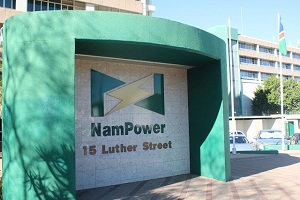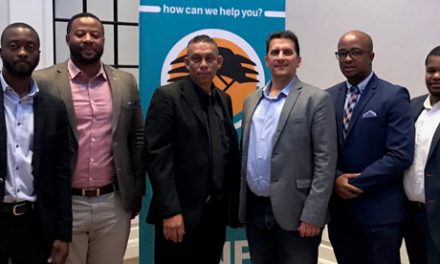
Environmental Investment Fund receives unqualified audit

By Michel Haoses.
Despite taking more than a year to complete, the Environmental Investment Fund (EIF) released their annual report a fortnight ago for the year starting 01 April 2022 to 31 March 2023, receiving an unqualified audit opinion.
The Fund is an investment institution set up under the Environmental Investment Act (13 of 2001) to provide funding for environmentally sound projects in a manner that complements programmes and actions of both the public and private sectors.
Theaudit report, presented by Board Chairperson Titus Ndove highlighted the fund’s 11th anniversary and accessing over N$3 billion of funding through development partners to support adaptations and other initiatives in Namibia.
Furthermore, during the reporting year, EIF successfully implemented the final year of the Integrated Strategic Business Plan for the period 2017-2022 completing 70% of set targets and looks forward to the launch of the new Integrated Strategic Business Plan 2023/2024 to 2027/2028 which is currently being drafted.
Through their Corporate Social Responsibility and Sponsorship Investment Programme the fund supported different social causes in support of the pillars of education, environment, and community upliftment as these projects are aligned with the National Development Plan (NDP), the Growth at Home Strategy, the Harambee Prosperity Plan, the United Nations Sustainable Goals and other national development agendas.
Additionally, the EIF also provided sound advice to the Minister of Finance and Public Enterprises, which catalyzes the transformation of the challenges and opportunities of today’s environmental sector.
Moreover, the watershed Memorandum of Understanding (MOU) signed between the public and private sectors during the reporting period remains a testament to a joint commitment to focus on leveraging each other’s strengths, the effective utilization of resources, and the maximization of returns accruing from public and private investments.
Ndove stated, “From a human capital perspective, we continue to strengthen our human resources as our staff remains the driving force behind the execution of our mandate”.
Ndove in conclusion expressed gratitude to fellow Board members for their contribution; the Minister of Finance and Public Enterprises and the Minister of Environment for their support, leadership, and guidance and to the Chief Executive Officer, Benedict Libanda, the management team, and staff for the great turnaround in the business prospects and outlook.












































